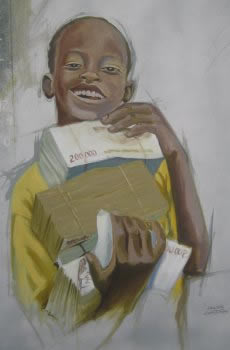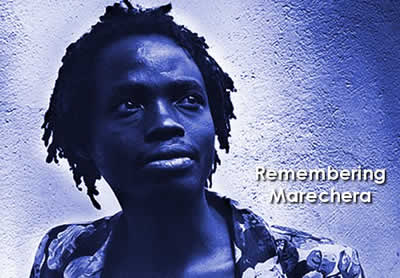Why should I vote?
Tuesday, January 25th, 2011 by Upenyu Makoni-MuchemwaZimbabwe is abuzz with talk of elections and the referendum. It seems the electorate will have a very busy year ahead of them. I must confess that I don’t count myself among the electorate; I’ve never registered to vote.
I imagine I’m not the only youth aged 18 to 35 who hasn’t registered to vote. Neither am I the only one who isn’t remotely inclined. Answer me this MKD, ZAPU, ZANU PF and MDC-whoever, why should I bother to vote?
Voting is supposed to be part of a democratic process where, after much consideration of the available candidates, a citizen may choose one whom he or she feels most addresses their issues. But after much consideration of the candidates available to me, frankly, I’d rather not participate. I do want change; I do want to be a part of something greater than myself. I have high hopes for Zimbabwe, but I find that these hopes are often choked by the reality of my day-to-day existence.
Everyday I am confronted by a kind of lawlessness. >From the Kombi drivers, who know no rules, to businessmen who shamelessly ransom basic necessities citing mythological taxes. And what are my City Councillor and Member of Parliament, who promised me a return to the Sunshine City in the Bread Basket of Africa doing about this? Nothing. When I read about ministers who unashamedly steal in broad daylight, and get away with it, it begins to make sense, none of these people care about me, or this country.
Once when I was younger, and caught up in an idealistic fervour I did believe that I could make a difference. That my vote was my right, and that my government was accountable to me and anyone else who answered to mwanawevhu. I am wiser now. Promises are made, and when the dust has settled, and the slogan charged rallies have ended they are forgotten.
I’m sure the people who cast their ballots in 2005 were full of hope that an election would bring water to their houses, doctors to their clinics, cheaper food into the shops and teachers back to their children’s schools. It didn’t. In 2008 they were beaten for taking the trouble, and their situation became worse. Why then would I want to participate in a process that legitimises the illegitimate, gives power to those without conscience and seems to only bring pain and suffering?
I am young, but I am no longer idealistic. I watched with envy Obama’s election campaign, as scores of young peopled chanted ‘yes we can’ marching in the streets on TV. They felt a sense of ownership of their country that I did once. I know better now. This is Mugabe’s Zimbabwe, and should he ever win, it will become Morgan’s Zimbabwe, but it will never be mine.











